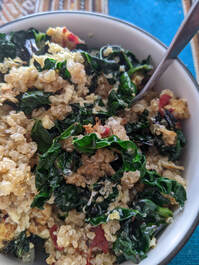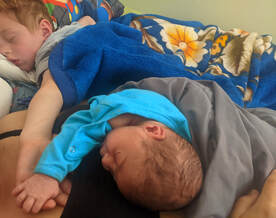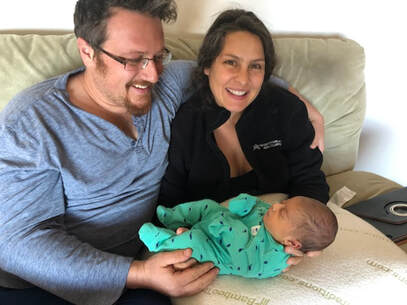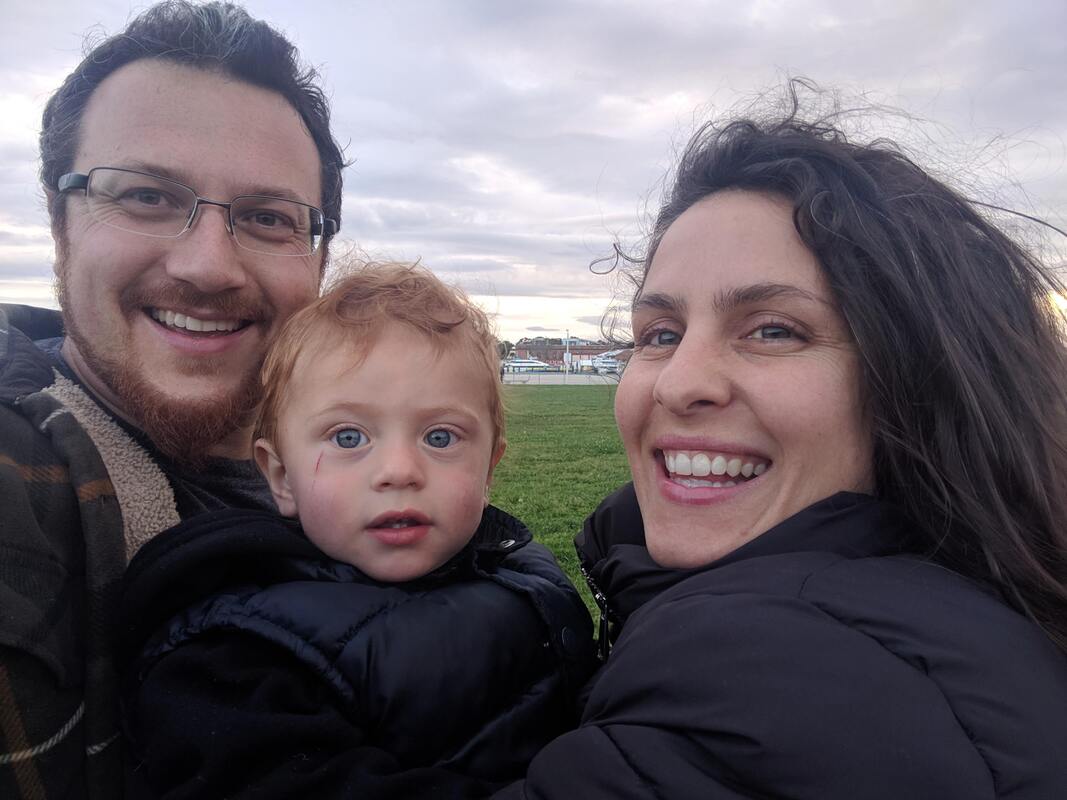 Tomorrow I celebrate my 40th day postpartum. 40 days you ask? This benchmark was new to me too until I was recommended the book The First Forty Days: The Essential Art of Nourishing the New Mother (thank you Sara!). In it I learned that cultures around the world have designated the first six weeks as a critical period for a new mother’s recovery. The book shares insights centered on the need for retreat, warmth, support, rest, and ritual. Mostly it’s an eye-opening reminder of the need to support moms in focusing on their self-care and recovery. The various traditions of postpartum care shared in this wonderful book date back centuries and stretch across continents. Customs vary, but they share a universal belief that the exertion of childbirth, physical transformations postpartum (ahem – healing a plate-sized wound, hormone changes, creating milk, sleep deprivation) and mothering a newborn take a toll on mental and physical health. According to the book’s authors, when deliberate physical care and support surround a mother after birth, there is less risk for postpartum anxiety and depression. With one in five women being affected by maternal mental health problems, this is noteworthy. Depending on your heritage or culture you may be familiar with some postpartum traditions. The Chinese call this 40-day period Zuo yuezi, or “the Gateway,” as it is a threshold between one way of being and an entirely new existence. In many parts of Latin America, this forty-day period is known as la cuarentena - “quarantine” playing off the Spanish word for forty. In Ayurveda medicine, the saying goes “the first 40 days of life will impact the next 40 years of life”. In most traditions women focus on rest, eat certain foods, are cared for by their community, and bond with their newborn for a set amount of time—in most cultures 21 to 40 days. In my experience, American culture is lacking this postpartum wisdom. Even as a second time mother, most of the traditions described were new to me. Since reading this book my outlook on how to support myself and other women postpartum has changed and I am forever grateful. I didn’t incorporate all of the book’s recommendations, but found that I treated myself different compared to my first postpartum experience. I gave myself permission to stay at home and rest. To focus on healing and the preparation of nourishing foods. I accepted and asked for help. To celebrate my bog’s 8th anniversary, I drafted this post to share some of these lessons as I feel they can benefit us all. Thanks for being here with me! Eat nourishing foods. When it comes to postpartum nutrition, you might be surprised to learn that nutrient needs in new moms are higher than while she was pregnant. Especially for breastfeeding moms. Across the globe, traditional cultures put a heavy emphasis on foods rich in iron (to reestablish stores), protein and collagen (to repair tissues), fatty acids (to enrich breast milk), vitamins, antioxidants, and therapeutic herbs (to encouraging tissue healing and counter inflammation), and fluids. Though recipes vary, warming foods like rich bone broths and soups, herbal teas, and porridges were almost universal. Of the 60 recipes shared in The First Forty Days, bone broth-based soups, stews, and curries are especially emphasized because they are packed with protein, collagen, gelatin and glycine, which support wound healing. In addition, eggs, seafood, and organ meats are encouraged as they are rich in choline, vitamin D, iron, iodine, vitamin B12, zinc, and DHA, which support the healing mother and breastfed infant. Following this guidance, I joined the bone broth bandwagon and made a few recipes from the book, including a delicious chicken stew with greens and quinoa. This book helped rekindle my love of quinoa – the only whole grain that is a complete protein (containing all 9 essential amino acids). I’ve been batch cooking it and eating it for breakfast like oatmeal with dried fruits and nuts, in power bowls, and stir-fries. Green leafy vegetables, beans, lentils, nuts and soy are also great sources of protein and other important postpartum nutrients like omega-3s, vitamin A, and C. With the help of our CSA box and local farmer’s market I’ve been grateful to have had ready access to produce during this time. I try to add greens to every stew smoothie and scramble. Lentil soups have been on weekly rotation and inspired by this book I’ve made nut milks to enjoy in smoothies with my son (nuts being a fabulous source of unsaturated fat and trace minerals). Energy balls and hummus are other great power foods that are a breeze to make. Eating nourishing foods not only heals the body – it supports a healthy mind. And with postpartum depression impacting more than 17% of all mothers worldwide, nutrition should be part of the conversation. I’ve written before about the microbiome and how the gut-brain axis helps regulate mood. We also know that plant-based foods help fight inflammation, which is linked to depression. So help spread the word: nourishing new moms is essential. Social support is another key ingredient in supporting the mental health of new mothers, which brings me to my second lesson. Nurture relationships by accepting and asking for help. Beyond nourishing foods, surrounding a new mother with supportive hands is essential. In fact, research shows that relationship satisfaction reduces postpartum stress and improves health. One section of The First Forty Days titled “the gathering” encourages you to go inward to prepare and plan for an easeful postpartum experience. We often hear about a mother’s “nesting” instinct and see so much attention placed on decorating the baby’s room. But what about stocking your fridge, pantry, and freezer with nutrient-dense and healing dishes and drinks? Or gathering your community and support team to help nourish and care for you in the weeks after the baby’s arrival? Many postpartum traditions highlighted in the book describe the new mother surrounded by a circle of caring women. Today, however, many of us live far from our families and friends. But that shouldn’t prevent a new mother from gathering a set of helping hands. Asking for help can be hard at first. It was for me and still is, but after overextending myself in my first week I realized I needed to. And guess what? Your community will rally behind you because we humans are hard-wired to give back and help! Ideas for help could be delivering a meal once a week, purchasing pantry items from The First Forty Days book, helping care for your older children, some housework or helping pay for professional help. The book also invites you to fortify your relationships by having conversations in advance about your worries and potential needs postpartum. Sit down with your partner and reflect on how you’ll divvy up the baby caring responsibilities, how your finances may be affected with the baby’s arrival or how your sex lives and social lives will be impacted. Ask yourself - Who can I call if/when I get frustrated, scared or confused? Who can I turn to on good days and days when I’m feeling blue? With foresight and preparation, you, your partner, and community will be able to get through the challenges and life-altering experience of welcoming a new child with grace ------------ For me, The First Forty Days revealed that more attention should be placed on mom’s nourishment and overall care. As someone who has made “lactation cookies” for every one of my pregnant friends, I now plan to help stock their freezer with a few quarts of homemade soup or prepared casseroles jammed with healthy protein and veggies. That being said, I may keep up the lactation cookies tradition as they are delicious and come in handy meeting the increased caloric needs of breastfeeding moms… This book reminded me that food and community heal. So whether you’re in your early days postpartum, recovering from an illness, or just feeling blah in this post-pandemic world and you’re missing either of those ingredients, ask for help. You may feel vulnerable, but as my hero Brené Brown says, “vulnerability is not weakness; it's our greatest measure of courage”. And as we practice reaching out when we need help, we strengthen our relationships and may ultimately inspire the world to be more open and generous. A special thank you to all my family and friends who supported me these first 40 days. And especially Albert– thank you for your support and foresight. Thanks for making sure my water bottle and heart is always full.
2 Comments
|
AuthorHello and welcome! My name is Andrea Notch Mayzeles. I am a Certified Health Education Specialist, Mom, and Master of Public Health dedicated to the path of well-being. As a wellness professional I am committed to continued learning and am here to share research, recipes and musings on health, psychology, personal development, and parenting. I hope you enjoy! Categories
All
|



 RSS Feed
RSS Feed